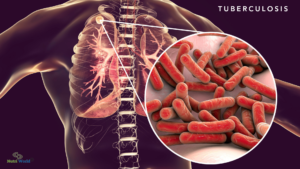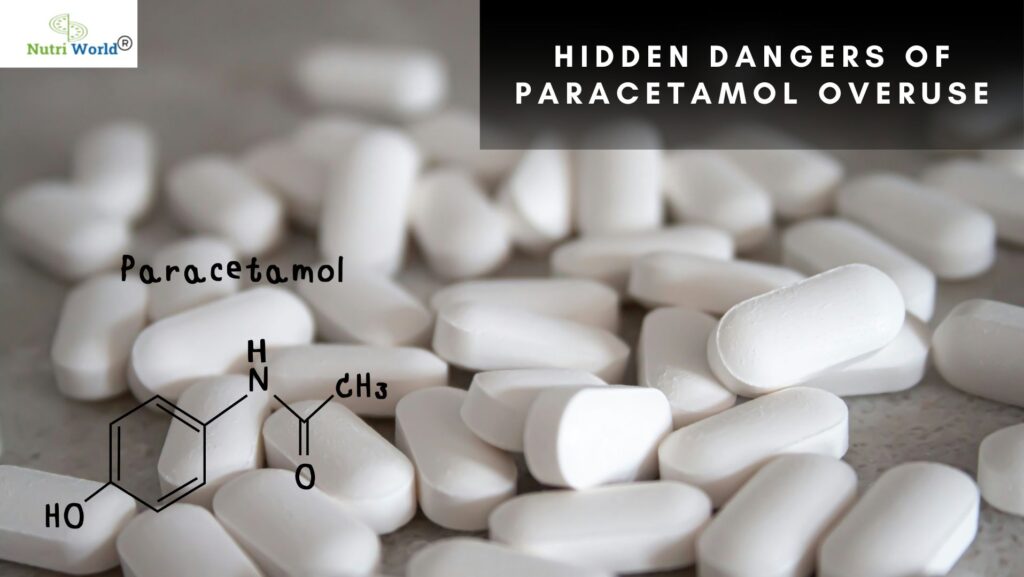How Does Gut Health Impact Stress and Anxiety Among College Students?
By Nutriworld | Dt. Dipanwita Saha

It might sound like there is no link between gut health and stress or anxiety. However, you might have noticed that leading an irregular lifestyle, going through depression
or facing anxiety alters your stomach health drastically. Does your eating habits affect your psychological state as well?
It has been observed that gut health issues are predominant among college students, and statistically, they are also a large group of people facing anxiety or stress. So, what is the connection between these two? Nutri World is here to provide insight on this topic and help you improve your mental health and gut health.
Relation Between Your Gut and Psychology
Most of our body is regulated by the central nervous system (CNS). Our gut is etched with nerves known as the enteric nervous system (ENS), which is similar to our brain, which is why advisors at Nutri World often term it the other brain. This results in clear communication between our gut and our brain. This is why there is a straight connection between our brain and our gut health. How you treat your gut can really affect your mental health as well.
The science behind how our gut health and the microbiome affect our brain and psychology is a meticulous topic. Without delving too deep into it, there are primarily three ways in which our brain is related to our gut.
- A majority of immune cells are housed within the gut. These cells protect us from harmful bacteria while sending signals to our brain at the same time.
- Our brain and gut are connected directly through the Vagus nerve. That’s why the activities of the gut microbiome can affect our brain functions.
- The ENS produces certain hormones and neurotransmitters that can affect our psychology, such as serotonin.
What Are Some Symptoms of Stress and Anxiety?
One dead giveaway that an individual is facing stress or anxiety is that they worry about every little aspect of their lives. People with anxiety can often fall into the void of severe symptoms that can affect their overall well-being significantly.
Some common signs that a person has anxiety are:
- shallow and rapid breathing
- fluctuating temperature
- faster heartbeat
- irregular sleep schedule
- changes in libido
- stomach issues
- headaches
- unclear thought process and hindered decision-making
These are mainly observed among college students or working individuals. The large sub-strata of this age group and domain show multiple signs of anxiety and stress. Some are facing even more severe symptoms that are recurring and long-term.
How Can Stress or Anxiety Affect Your Gut Health?
As mentioned before, our gut is connected directly to our brain through the vagus nerve. Similar to the nerve structure that spreads throughout our brains, there are nerve systems in our guts as well. Now, stress or anxiety often releases hormones or neurotransmitters that impact our digestive system. The gut microbiome is influenced as well by this chemical imbalance, which leads to several irregularities and gastrointestinal issues.
- Bad Stomach
- Indigestion
- Diarrhea
- Nausea
- Irritable Bowel Syndrome (IBS)
- Constipation
- Irregular Appetite
How Can This Be Improved?
After reading about how anxiety and stress can affect our gut and eating habits, you must be wondering about ways to prevent or improve this condition. Experts at Nutri World have combined a few ways and even mentioned which nutrients are necessary to improve your gut and brain health.
- Having enough time to digest your food correctly enhances the absorption of essential nutrients that are necessary for our body to function well.
- Even when snacking, eat healthy foods rather than junk food, as they can adversely affect your body.
- Eat what you love or try to enjoy your meal rather than trying to gulp it down for the macros. A healthy mind while eating can positively affect your digestion.
- Therapy is always advised for individuals with severe anxiety or stress issues.
- Drinking enough water throughout the day is just as necessary. It not only improves the absorption of nutrients but also enhances the entire digestive system.
- Working out can be difficult for people with a busy schedule. However, taking an hour out of your day to stay active or take a walk around the neighbourhood can significantly improve your physical and mental health.
Foods That Boost Your Gut and Mental Health!
The key to improving your gut health is to know the types of foods that boost your gut health and mental health. Some of these foods include:
- Fibers are an essential nutrient and improve your overall health. Foods such as fruits, oats, dark chocolate, or nuts can improve your brain health and psychology.
- Vitamin D is essential for maintaining the gut microbiome and gastrointestinal inflammation. Salmon, egg yolks, and milk are excellent sources of vitamin D.
- Proteins are the building block of life, so it is obvious how necessary they are. Consuming protein-rich foods such as eggs, meat, milk, or fish can improve your mental health due to the release of serotonin, which is a mood booster.
- Omega-3 fatty acids are crucial for your brain health. Walnuts, Chia seeds, Salmon, and Mackerel are excellent sources of Omega-3 fatty acids. This improves your memory and cognitive function.
While it is becoming challenging to maintain a healthy lifestyle in this growing time, one must try one’s best to keep one’s brain healthy. A healthy brain means a healthy gut, and there are countless benefits to being healthy. Despite the packed schedule of college students or working individuals, giving a few moments of your day to eat healthy or rest your brain can be helpful. While no one actively indulges in activities that can trigger stress or anxiety in them, Nutri World suggests people participate in activities that soothe their minds or they enjoy doing to reduce such responses.
Key Takeaways
- Our gut health is related to our brain health, which implies that what you eat can affect your psychology, or your mental health can affect your eating habits. Our gut has an intricate network of nerves structured within the ENS, which is similar to the CNS, which regulates most of the functions in our body.
- A simple symptom of anxiety or stress is constant worrying or hindered decision-making. Apart from that, irregular eating habits, fluctuating libido and body temperature, shallow breathing, and rapid heart rate are common signs.
- Anxiety or stress can affect your eating habits and digestion and lead to stomach issues such as IBS, constipation, or diarrhea.
- Eating at your leisure, enjoying your meal, or exercising can improve your gut and mental health.
Foods that contain nutrients such as Fiber, vitamin D, protein, or omega-3 fatty acids are essential for maintaining good gut and brain health
There is a delicate connection between our gut health and brain. It is not surprising as many people might have observed that any psychological changes affect their eating habits. Now, irregular diet can also affect brain health as it is a two-way street. With more and more people facing anxiety and stress issues in recent times, having healthy gut health has become challenging. While it is observed that college students and working individuals mostly face these issues due to their constrained lifestyles, there are specific ways to improve this situation. Our experts at Nutri World are more than delighted to help you maintain a healthy diet and brain health.
Courses:
I’ve got plenty of videos covering this topic, along with ideas for a balanced diet to ensure we get all the necessary nutrients for good health.
Hypertension has been a raging issue in recent times, but how can we deal with it?
Anaemia and how one can deal with low iron absorption
Vegetables have countless health benefits
How do you deal with Hair fall?
FAQs
1. Can anxiety be the reason for stomach issues?
Anxiety can lead to several stomach problems, such as indigestion, acid reflux, nausea, diarrhea, or constipation. Since the brain and gut are connected through the vagus nerve, there is clear communication between these two elements of our body.
2. How are our brain and gut connected?
Similar to nerves being spanned across our brain, there is a complex nerve network in our gut called the Enteric Nervous System. The gut is often referred to as the second brain, and there is a straight connection between our gut and brain through the vagus nerve.
3. Can chronic stress impact your gut microbiome?
Yes, our gut microbiome is affected by chronic stress. The beneficial bacteria are reduced while the harmful ones are increased, causing several issues, such as digestive problems. Immunity issues and inflammation.
4. Does anxiety cause nausea?
Anxiety causes the release of stress hormones and certain neurotransmitters that hinder digestion and increase stomach acid, leading to nausea.

Hello! I'm Dietician Dipanwita Saha is the founder of Nutriworld and a dedicated clinical dietitian. I focus on helping individuals improve their health through personalized diet plans that are based on scientific principles. I believes that proper nutrition is crucial for healing and maintaining a balanced lifestyle, whether someone is recovering from an illness or managing a health condition.
I provide personalized diet consultations to help you reach your health goals, such as managing weight, recovering from illness, or improving overall wellness. My method is based on scientific nutrition and includes practical meal plans tailored to your lifestyle.
For more practical diet tips, healthy recipes, and expert insights, subscribe to my YouTube channel. I regularly upload videos to simplify nutrition and help you make informed food choices.






